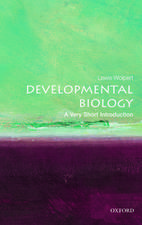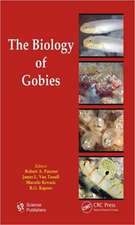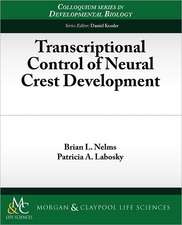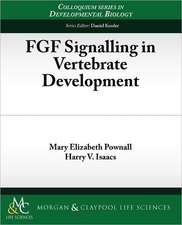Fish Defenses Vol. 2: Pathogens, Parasites and Predators
Editat de Giacomo Zacconeen Limba Engleză Paperback – 16 ian 2019
| Toate formatele și edițiile | Preț | Express |
|---|---|---|
| Paperback (1) | 455.78 lei 6-8 săpt. | |
| CRC Press – 16 ian 2019 | 455.78 lei 6-8 săpt. | |
| Hardback (1) | 962.37 lei 6-8 săpt. | |
| CRC Press – 10 ian 2009 | 962.37 lei 6-8 săpt. |
Preț: 455.78 lei
Nou
Puncte Express: 684
Preț estimativ în valută:
87.22€ • 91.48$ • 72.60£
87.22€ • 91.48$ • 72.60£
Carte tipărită la comandă
Livrare economică 01-15 aprilie
Preluare comenzi: 021 569.72.76
Specificații
ISBN-13: 9781138113534
ISBN-10: 1138113530
Pagini: 411
Dimensiuni: 156 x 234 x 23 mm
Greutate: 0.45 kg
Ediția:1
Editura: CRC Press
Colecția CRC Press
ISBN-10: 1138113530
Pagini: 411
Dimensiuni: 156 x 234 x 23 mm
Greutate: 0.45 kg
Ediția:1
Editura: CRC Press
Colecția CRC Press
Cuprins
The Biology of Teleost Mucosal Immunity; Host Defense Peptides in Fish: From the Peculiar to the Mainstream; Viral Immune Defenses in Fish; Vaccination Strategies to Prevent Streptococcal Infections in Cultured Fish; Behavioral Defenses against Parasites and Pathogens; Pharmacology of Surfactants in Skin Secretions of Marine Fish; Defense Strategies of Opisthobranch Slugs against Predatory Fish; Behavioural Defenses in Fish; Defense against Pathogens and Predators during the Evolution of Parental Care in Fishes; The Nose Knows: Chemically Mediated Antipredator Defences in Ostariophysans; Alarm Responses as a Defense: Chemical Alarm Cues in Nonostariophysan Fishes
Recenzii
Dramatic environmental changes over the past few decades have affected how biologists understand how individuals and populations respond to the shifting landscape that we live in. For aquatic species, changes to temperature and water quality have direct and indirect effects with the mechanisms for defense occurring at many levels. The 400 pages of this hard cover book are organized into eleven chapters which include: viral immune defenses in fish, vaccination strategies to prevent Streptococcal infections in cultured fish, pharmacology of surfactants in skin secretions of marine fish, behavioral defenses in fish, defense against pathogens and predators during the evolution of prenatal care in fishes. Based on the breakdown of the information it is a book that would be helpful to anyone who is working in the medical arena that is known as aquaculture. This is a good reference for anyone interested in the ecology of fish defenses. It is very well written and informative … a nice addition to a reference collection and something that a technician student would find useful in research.
—The VIN Book Reviews, October 2011
This is a two-volume set in the ever-expanding Fisheries series of edited books. Whereas the first volume focused specifically on aspects of the fish immune system, this second volume provides a rather eclectic mixture of reviews on topics as diverse as behavioral responses to predators and parasites to the pharmacology of skin surfactants.
—Quarterly Rev Riology, September 2011, Vol. 86
—The VIN Book Reviews, October 2011
This is a two-volume set in the ever-expanding Fisheries series of edited books. Whereas the first volume focused specifically on aspects of the fish immune system, this second volume provides a rather eclectic mixture of reviews on topics as diverse as behavioral responses to predators and parasites to the pharmacology of skin surfactants.
—Quarterly Rev Riology, September 2011, Vol. 86
Notă biografică
Giacomo Zaccone Department of Animal Biology and Marine Ecology Messina University Italy, c. Perrière Laboratoire de Biologie Animale. lnsectes et Toxins Faculte de Pharmacia Chatenay-Malabry Cedex France, A. Mathis Department of Biology Missouri State University Springfield, Missouri USA, B.G. Kapoor Formerly Professor of Zoology The University of Jodhpur Jodhpur, India
Descriere
Dramatic changes in the environment, including habitat degradation and climate change, have focused attention on how individuals and populations respond to a shifting biotic and abiotic landscape. A critical step toward meeting this goal is a clear understanding of the capacity of individuals to defend themselves against threats. Changes in water quality and temperature have direct and indirect effects on fishes. Defensive responses can occur at many levels, from cellular to behavioral actions. The authors in this volume have attempted to provide a general view of the current state of knowledge of fish defenses with respect to pathogens, parasites, and predators, and to point out gaps where further study is needed.






















